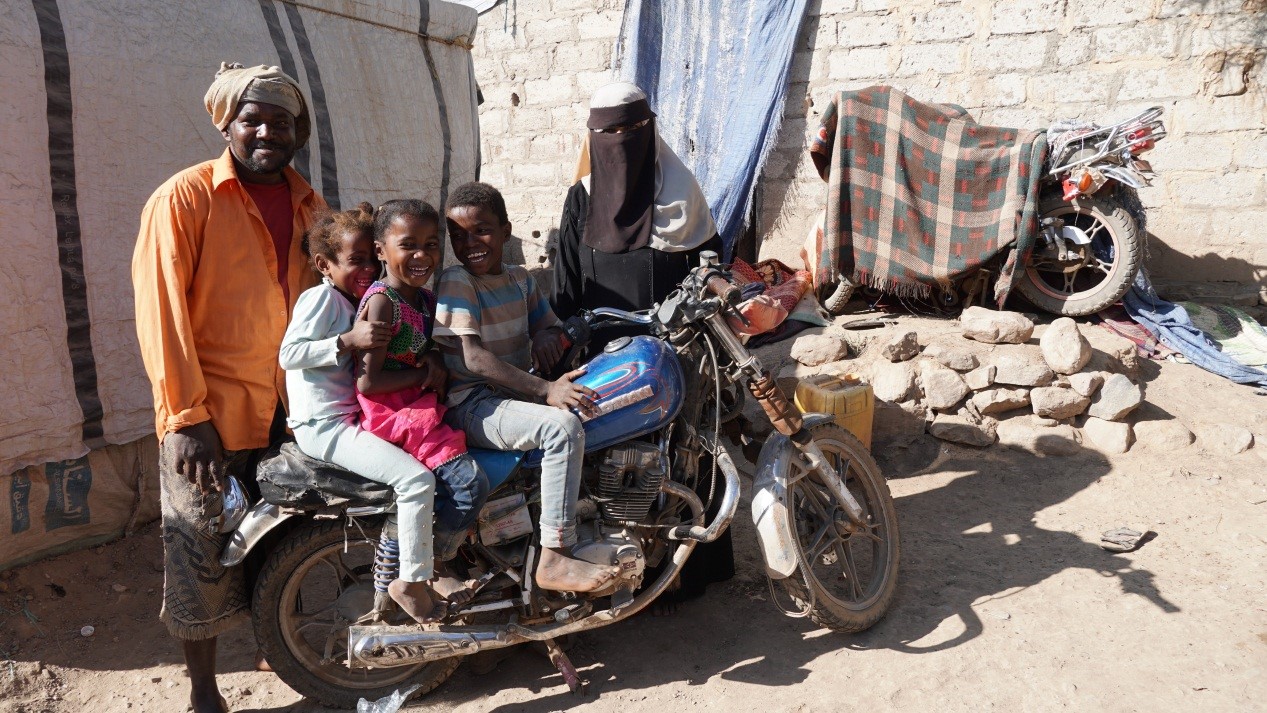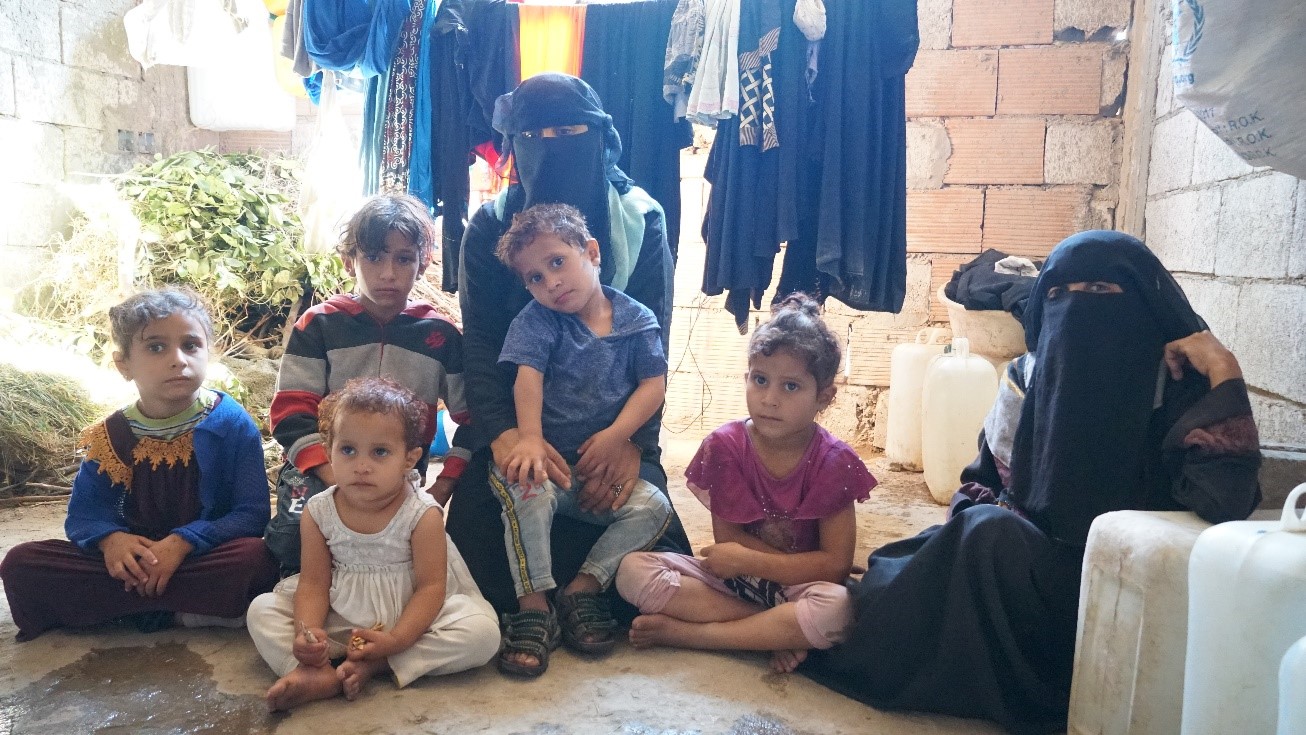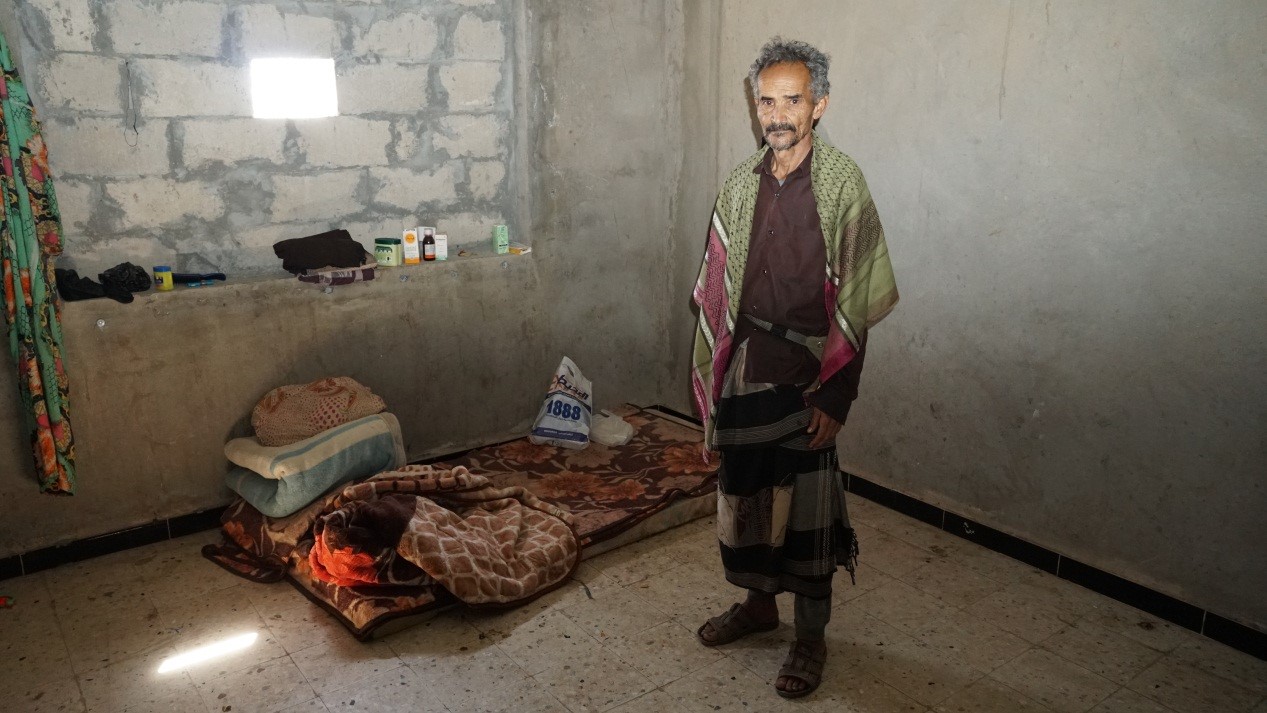In Yemen, over 20 million people suffer from malnutrition and are in need for food assistance. The civil war and currency collapse are exacerbating the situation. Continuous increases in the price of food items, medical supplies and fuel have been reported across the southern region, with prices for basic food items estimated to have seen an increase by 60 per cent. The outbreak of the Covid-19 pandemic and the spread of epidemics of other diseases such as cholera have led Yemen into being recognized as one of the worst humanitarian crises.
The situation in northern Al-Dhalee governorate, in south-western Yemen, remains highly unpredictable and volatile, with ongoing fighting in multiple locations significantly affecting humanitarian access and response. Because of the escalating hostilities, humanitarian needs have increased primarily due to large-scale displacements.
“My husband and my sister are disabled and my children are young. I had no choice but to beg after I could not find a job,” says Saeeda, a 54-year-old mother of six. “Every day I think about how I can put some food on the table for my children and family. Until it seemed as if help came from heaven through the cash assistance CARE gave us and that helped me face all the challenges we’d had because of our life in displacement.” she adds.
Fearing for the lives of her family, Saeeda had fled her village since she felt it was unwise and unsafe to stay any longer. The family’s journey of displacement was arduous as they had traveled through the mountains on foot from their home in the war-torn city of Qataba, as gunfire rang out around them. Luckily, they all survived.
In 2021, CARE, with support from the Dutch Relief Alliance (DRA), delivered assistance in Al-Dhale’e governorate aiming to reduce food insecurity and to promote economic recovery in the targeted districts. The project has helped more than 381 families – that is 2,576 individuals – by providing unconditional cash assistance. Each beneficiary received 53,000 Yemeni Riyal (YER) for the first two months and 71,000 YER for four months. This corresponded to the adjusted levels of the minimum rate of a food basket in accordance with the Food Security and Agriculture Cluster which prevailed during the project’s lifetime.




